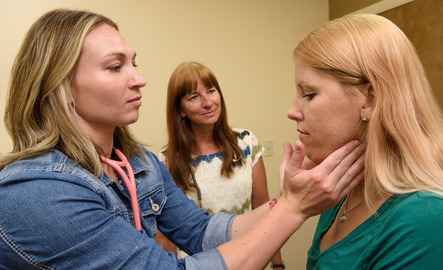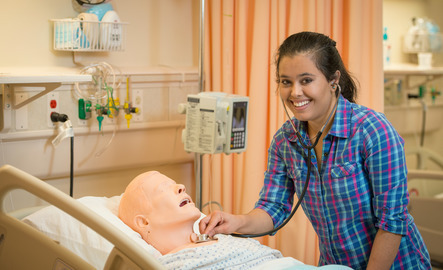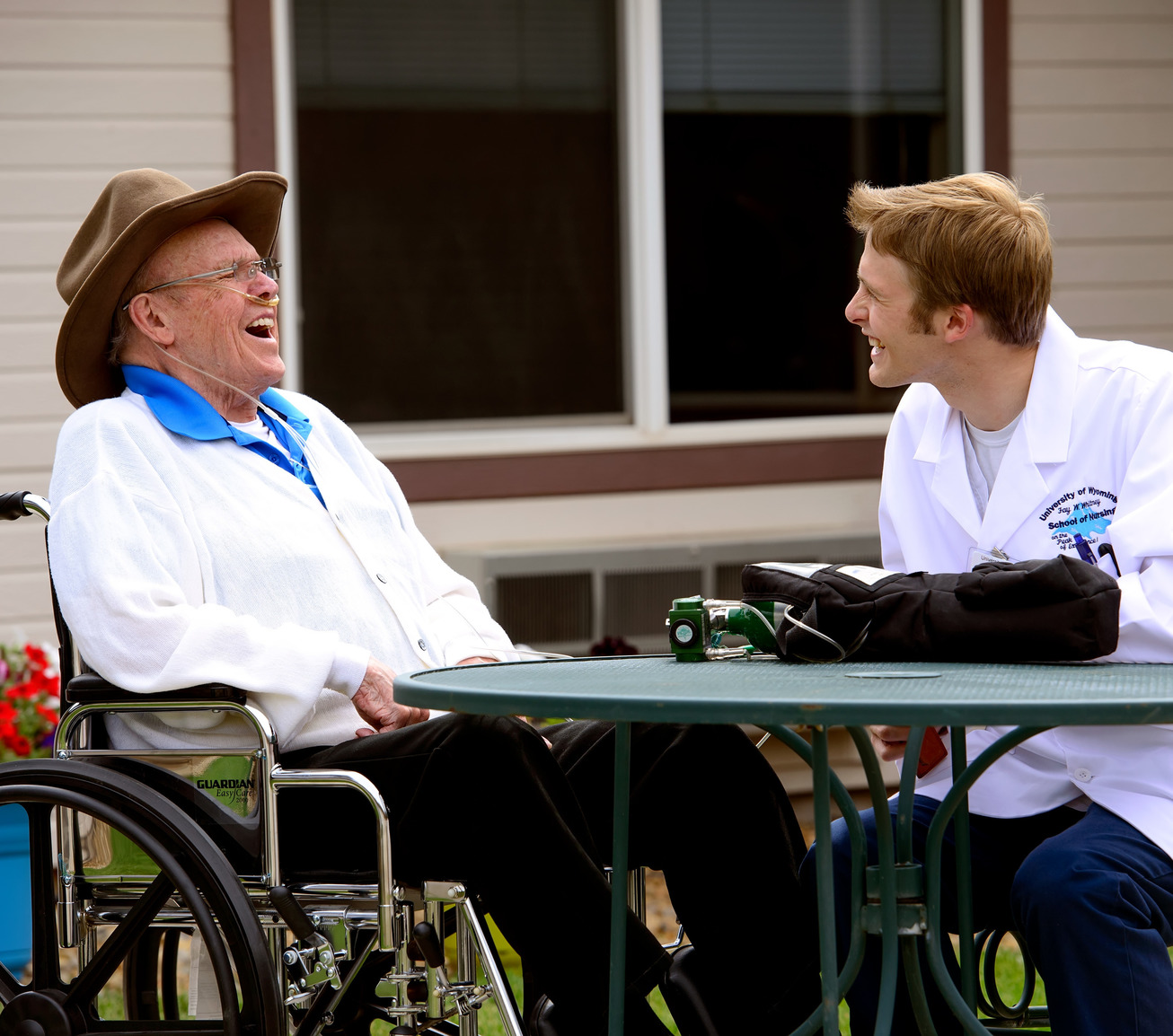About the Basic BSN Program
The University of Wyoming Fay W. Whitney School of Nursing boasts a "small school"
atmosphere, accepting a maximum of 48 students into the nursing major each year. Students
receive plenty of face time with professors in addition to hands-on training in our
superb labs and facilities.
While classes are based in Laramie, clinical sites are mainly in Laramie and Cheyenne,
with travel being the responsibility of the students. The capstone practicum in the
spring semester of the senior year may require a student to travel to and/or live
in one of our Wyoming communities for clinical placement.
The Commission on Collegiate Nursing Education has accredited the University of Wyoming's
Fay W. Whitney School of Nursing's baccalaureate, master's, and doctoral nursing programs.
The University of Wyoming's School of Nursing has a long history of accreditation.

Freshman/Non-Freshman Admission to the Nursing Major: This Basic B.S.N. plan includes three semesters of pre-clinical coursework and six
semesters (which includes one summer semester) of clinical coursework.
Freshman Admission to the Nursing Major: Students who are graduating from high school (or recent high school graduates) and
who have not completed any college credits post-high school (excludes any taken during
high school) may apply for Freshman Admission to the Nursing Major to start at UW
in the fall semester. Freshmen admitted to the nursing major will begin the clinical
component of Basic B.S.N. in the spring semester of the sophomore year. Freshman admits
must successfully complete the pre-clinical coursework outlined in the first three
semesters of the Basic B.S.N. Program of Study by the end of the sophomore fall semester.
Non-Freshman Admission to the Nursing Major: Students not offered freshman admission to the nursing major (e.g. Basic B.S.N. Pre-Nursing
students, transfer students, and other majors) who are completing the pre-clinical
courses may apply for any unfilled seats in the clinical component of the nursing
major through non-freshman admission. Non-freshman admission is a competitive process,
and the number of unfilled seats may be very limited. Completion of pre-clinical courses
is required by the end of the fall semester prior to the spring in which seeking non-freshman
admission.

- Employ evidence-based information and communication technologies to deliver safe nursing care. (Domains 4, 5, & 8; CCC: Safety, Clinical Judgment, Patient centeredness)
- Integrate knowledge from nursing and other disciplines to inform clinical judgement. (Domain 1 & 2; CCC: Clinical Judgement, Health Promotion, Patient Centeredness)
- Generate evidence-based solutions to system level problems across multiple healthcare settings. (Domain 7; CCC: Leadership, Clinical Judgment, Safety)
- Coordinate person-centered care for optimal health and wellness. (Domain 2; CCC: Patient centered care & Health Promotion)
- Demonstrate professional behaviors that align with nursing standards and scope of practice. (Domain 9; CCC: Professionalism)
- Implement effective partnerships, policy, and advocacy across diverse populations. (Domains 3 & 6; CCC: Leadership & Health Promotion)
- Establish self-reflective behaviors to foster personal well-being, lifelong learning and leadership traits. (Domain 10; CCC: Leadership, Professionalism, and Health Promotion)
Domains: AACN Essentials Domains
CCC: RENeW Core Curricular Concepts
What Can You Do With a BSN Degree?
Most BSN students go on to grad school; that is the primary goal of the program. Of course, you may also choose to follow a different path within the medical field.
- Registered nurse
- Writer
- Health coach
- Researcher
- Nurse Informaticist
- Nurse marketing consultant
The Basic BSN degree program includes a licensure component. Upon acceptance and completion of the BSN program, students are eligible to apply for the Registered Nurse (RN) licensure examination.
Some other opportunities that a BSN degree may prepare you for either alone or combined with appropriate certification are:
- Legal Nurse Consultant
- Nurse Case Manager
- Home Health Nurse
- School Nurse
- Public Health Nurse
- Forensic Nurse
- Critical Care nurse
- Medical/Surgical Nurse
- Emergency Department Nurse
- Oncology Nurse
The job outlook for BSN graduates is strong, with RN roles projected to continue to grow over the coming years. BSNs enjoy higher pay, leadership opportunities and access to advanced roles like nurse practitioner and nurse educator, which are in even higher demand!
Building Connections & Making a Difference
At the University of Wyoming, our Basic BSN program offers a close-knit, supportive community where students form lasting connections as they prepare for impactful careers in healthcare. The Fay W. Whitney School of Nursing fosters a friendly, professional and forward-thinking environment focused on active learning, collaboration, rural health and innovative practice. Students are able to build connections with their peers as they grow personally and professionally.
“The clinical experience and capstone were my favorite parts of the program. I felt like I was able to put what we learned into practice. The preceptors at the hospital were incredible!"
- BSN Graduate


